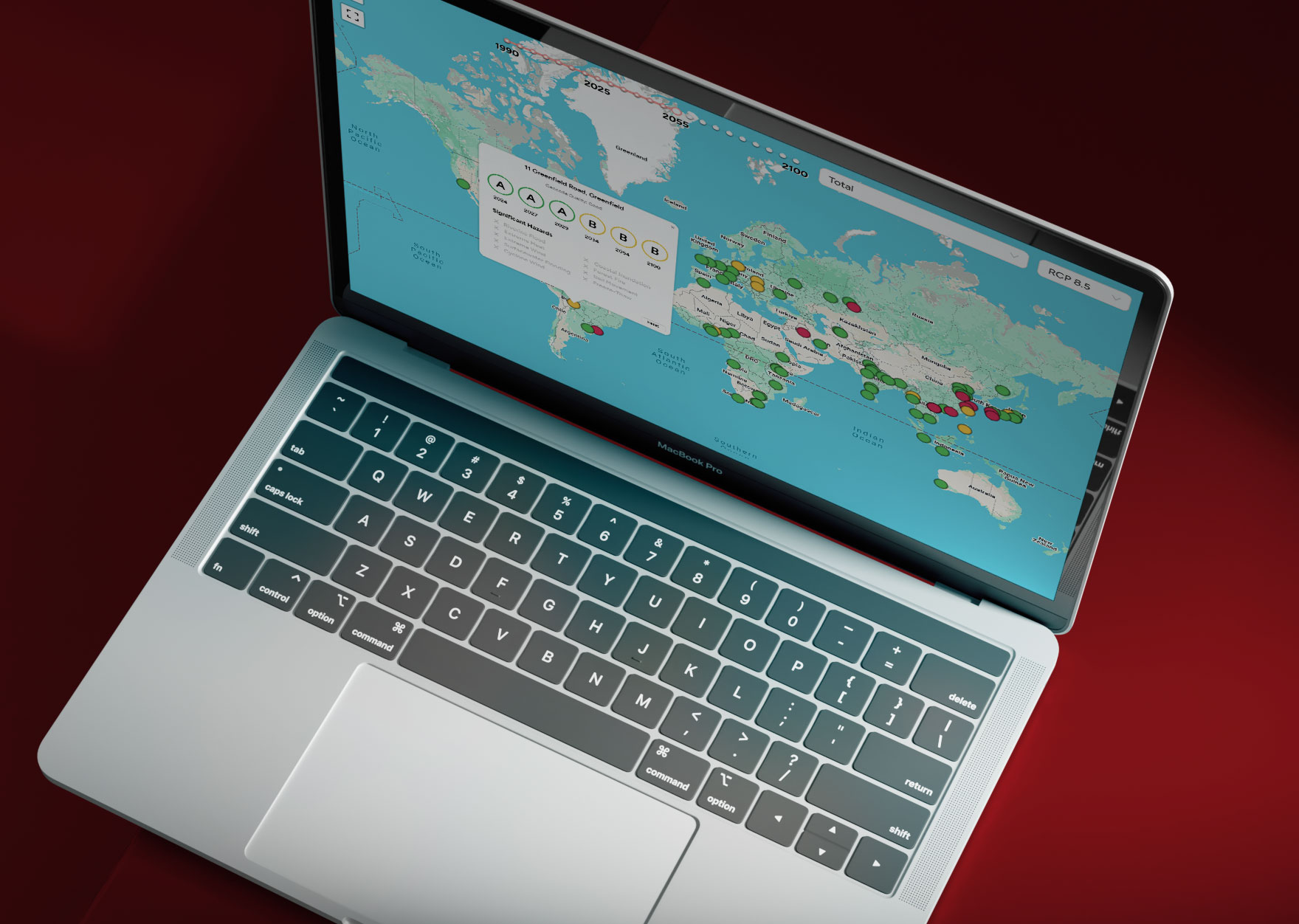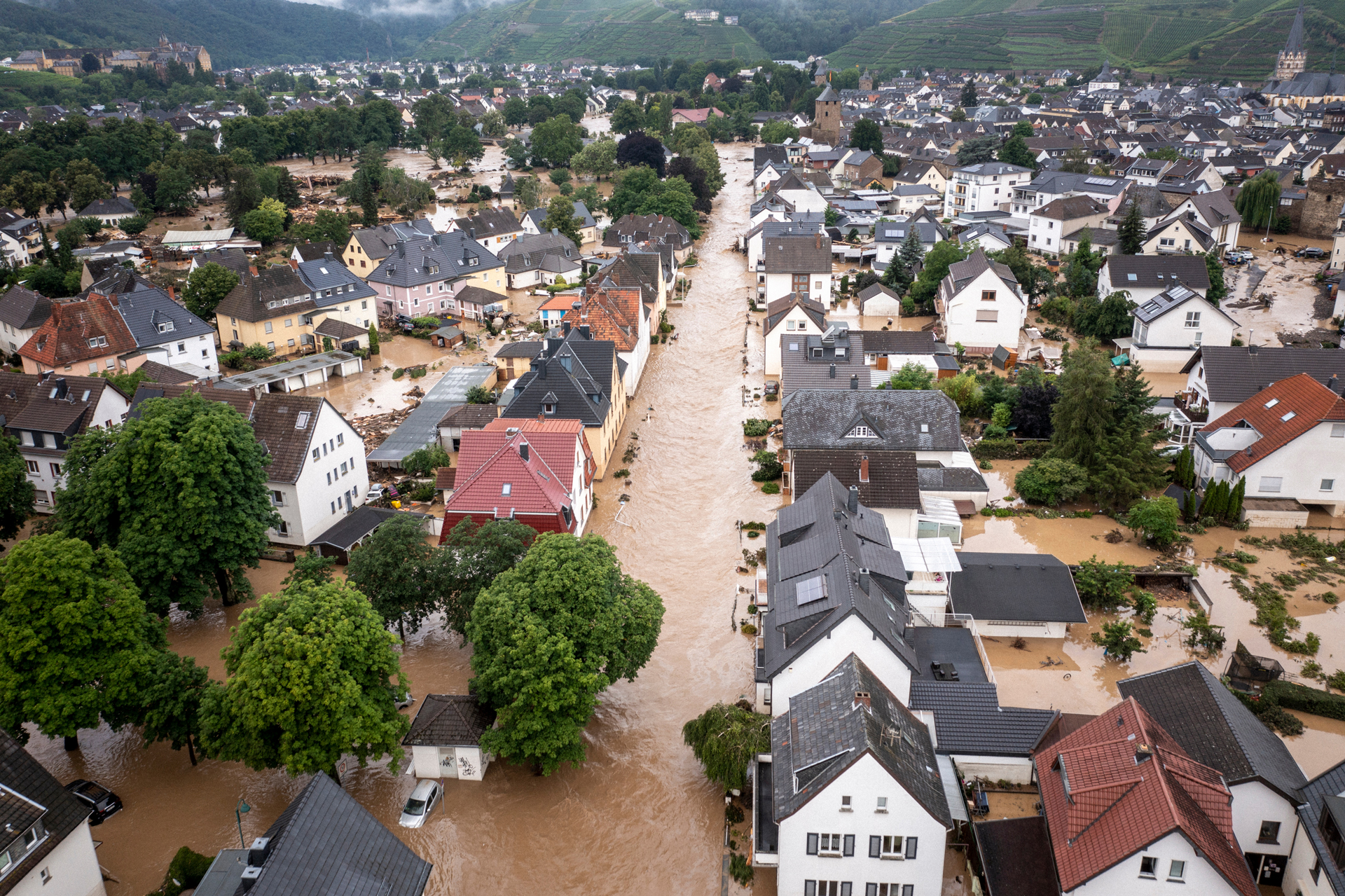Hospitals in the eye of the storm: New report exposes risk of hospital shutdowns from extreme weather

(London: Saturday 2 December 2023): 1 in 12 hospitals around the world could face partial or total shutdown from climate change extreme weather events if countries fail to curb fossil fuel emissions, according to a new report released today by XDI (Cross Dependency Analysis) - a global leader in physical climate risk analysis.
As a result, communities hit by hurricanes, severe storms, flooding, forest fires and other disasters could be cut off from emergency hospital care right when they need it most, with low and middle income countries most at risk, they say.
"Climate change is increasingly impacting the health of people around the world. What happens when severe weather results in hospital shutdowns as well? Our analysis shows that without a rapid phase out of fossil fuels, the risks to global health will be exacerbated further, as thousands of hospitals become unable to deliver services during crises,” said Dr Karl Mallon, Director of Science and Technology, XDI (Cross Dependency Initiative).
Key findings from the 2023 XDI Global Hospital Infrastructure Physical Climate Risk Report
- Without a rapid phase out of fossil fuels, up to 1 in 12 hospitals worldwide will be at high risk of total or partial shutdown from extreme weather events by the end of the century - a total of 16,245 hospitals. This is almost twice as many hospitals as are currently at high risk. A residential or commercial building with this level of risk would be considered uninsurable.
- All of these 16,245 hospitals will require adaptation, where practical. Even with this enormous investment, relocation will be the only option for many.
- Of the 16,245 hospitals identified as high risk by 2100, 71% (11,512) of them are in low and middle income countries.
- Limiting global warming to 1.8 degrees celsius with a rapid phase out of fossil fuels would halve the damage risk to hospital infrastructure compared to a high emissions scenario. If emissions are high, the risk of damage to hospitals around the world from extreme weather will increase more than four-fold (311%) by the end of the century. In a low emissions scenario, this increase in risk is reduced to just 106%.
- South East Asia has the highest percentage of hospitals at high risk of damage from extreme weather events in the world. With high emissions, almost 1 in 5 hospitals (18.4%) in South East Asia will be at high risk of total or partial shutdown by the end of the century.
- South Asia has the highest number of hospitals at risk, reflecting the high population. By 2050, a third of all the most high risk hospitals (3,357) in the world will be in South Asia if emissions are high. By 2100 this could increase to 5,894.
- Hospitals located on coastlines and near rivers are most at risk. Today, riverine and surface water flooding dominates the risk of damage to hospitals. Towards the end of the century, coastal inundation rapidly increases (exacerbated by sea-level rise) and becomes the most significant hazard after riverine flooding by 2100.
“The most obvious thing to dramatically reduce this risk to hospitals, and keep communities safe, is to reduce emissions,” said Dr Karl Mallon.
About the 2023 XDI Global Hospital Infrastructure Physical Climate Risk Report
The report analyses how continued emissions will affect the vulnerability of over 200,000 hospitals around the world to six climate change hazards: coastal inundation, riverine flooding, surface water flooding, forest fire, extreme wind and cyclone wind. The analysis focuses on physical damage to building structures, and calculates how different emission scenarios can reduce risk. It is being published ahead of the inaugural Health Day at the COP28 UN Climate Conference, held 30 November to 12 December in the United Arab Emirates (UAE).
How risky is your hospital?
As part of the report, XDI is releasing the names, location and level of risk (high, medium, low) for over 200,000 hospitals around the world. XDI is urging all governments to check for high risk hospitals in their region and conduct further analysis to understand and reduce this risk.
"Governments have a duty to populations to ensure the ongoing delivery of critical services. For individual governments not to take action on this information, or for the global community not to support governments in need, is a blatant disregard for the wellbeing of their citizens," said Dr Mallon.
About XDI
The data behind XDI (Cross Dependency Initiative) has been helping global leaders price physical climate risk since 2007, making the group the world's longest standing independent specialist in physical climate risk and adaptation analytics. XDI works with governments, corporates and the international finance sector, providing cutting edge analysis to help make informed decisions. XDI is part of The Climate Risk Group.
Related posts

Going to COP30? Come see a preview of ResilienceArc - A world-first breakthrough in corporate transparency for climate risk and adaptation

XDI unveils next-generation Climate Risk Hub: Where flexibility meets power

Europe’s economic hubs drowning in risk: XDI warns flood damage risk rising in Milan, Paris, Frankfurt and beyond

XDI identifies international airport infrastructure at increasing risk from climate extremes
Contact us
Get in touch with one of our friendly team
